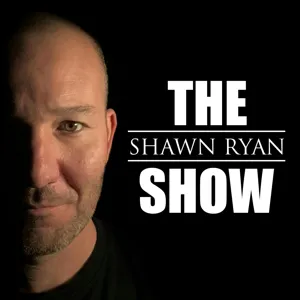Podcast Summary
Monetizing your assets with Airbnb: Airbnb can help offset costs and generate income from underutilized assets. Be financially self-reliant and prepared for unexpected circumstances.
Monetizing what you already have, such as your home through Airbnb, can be an effective and easy side hustle. The speaker, Nicole Lappin, shares her personal experience of using Airbnb to offset the costs of renting remote cabins for writing, while also ensuring her house doesn't sit empty. She emphasizes that Airbnb makes it easy for anyone to get started, and your home might be worth more than you think. Additionally, the conversation between Nicole and Neli Galan about growing up with financial distrust and the recent banking system issue in the US, highlights the importance of being financially self-reliant and prepared for unexpected circumstances. Overall, the message is that utilizing what you have and being financially savvy can lead to financial growth and security.
Turning financial trauma into strength: First-generation immigrants and minorities can transform their financial traumas into sources of resilience and control by acknowledging and addressing their past experiences.
Money trauma, a common experience among first-generation immigrants and minorities, can actually be a source of strength rather than a weakness. Dr. Nicole, a first-generation American of Cuban descent, and her interlocutor, who found each other through social media, shared their experiences of dealing with financial trauma and how it shaped their relationship with money. They discussed how their painful pasts drew them to money matters and how confronting their demons allowed them to gain control and turn their perceived weakness into a superpower. As Dr. Nicole put it, "It's our pain." By acknowledging and addressing their financial traumas, they could not only take charge of their financial lives but also inspire and support others in similar situations. The conversation underscored the importance of recognizing the power of personal stories and using them to overcome challenges and find success.
Childhood traumas and their impact on money relationships: Childhood traumas can shape our attitudes towards money and drive us to work hard for security and control. Confronting and addressing these traumas is crucial for overcoming them and achieving success.
Traumatic experiences in childhood can shape an individual's relationship with money and their determination to gain control and security. The speaker, who experienced a tumultuous childhood marked by a contentious divorce, kidnapping, and financial instability, shares how she coped by focusing on work and self-reliance. Despite the fear of repeating her past, she emphasizes the importance of confronting and addressing these traumas to overcome them and achieve success. The speaker and interviewer also reflect on their shared motivation to accumulate wealth as a means to gain stability and security, rather than for material possessions. Overall, their conversation underscores the transformative power of adversity and the resilience of the human spirit.
Navigating challenges and achieving success: Despite facing adversity, one can still overcome obstacles and succeed with the right tools, resources, and mindset. Acknowledging and addressing challenges is crucial for personal growth and success.
Overcoming adversity and achieving success is possible, even without the traditional advantages or resources. The speaker shared her personal experience of navigating college applications and financial struggles without any help, ultimately getting into Ivy League schools. She emphasized the importance of providing tools and resources for those facing similar obstacles, whether it's coming from another country, having parents with financial difficulties, or dealing with other challenges. She also highlighted the importance of acknowledging and addressing the impact of these challenges on one's life and mental health, as well as the value of creating a cohesive narrative for personal growth and success.
Sharing stories of escaping abuse and improving finances: Sharing stories of escaping abuse and learning frugality can lead to financial improvement. Seek help, practice tough love, and find balance.
Sharing your story with compassion and tough love can help women escape from abusive situations and improve their financial situation. The use of cognitive behavioral therapy and taking action are essential steps. Frugality, while it may have been learned from difficult experiences, can be a valuable lesson when balanced with the importance of credit and savings. For those looking to leave a difficult situation, it's important to start making money, saving money, and finding a balance between old lessons and new ways of managing finances. Owning past mistakes and seeking help can lead to a brighter future.
Cultural differences and past experiences shape banking perceptions: Understanding and addressing cultural mistrust towards banks and promoting financial education can foster financial inclusion and stability.
Cultural differences and past financial experiences significantly impact how individuals perceive and engage with the banking system. For many, mistrust in banks stems from past financial instability and collapses in their home countries, leading them to prefer alternative methods or avoid banking altogether. It's crucial to understand and acknowledge these fears while educating and encouraging engagement in the financial system to build a more inclusive and financially stable society. Additionally, recognizing the interconnectedness of mental and financial health is essential in fostering positive financial behaviors and promoting overall well-being.
Addressing financial literacy and trust issues in immigrant communities: Educating immigrant communities about financial literacy and building trust is crucial. It's important to acknowledge historical contexts, differentiate between good and bad debt, and promote open dialogue to alleviate fears and promote financial stability.
Compassion and understanding are crucial when addressing financial literacy and trust issues within immigrant communities. Fear of losing money or distrusting financial institutions is valid and rooted in historical contexts. However, it's essential to educate these communities about the benefits of financial literacy, including the negative effects of keeping cash hidden and the importance of investing. Additionally, it's important to differentiate between good and bad debt and to understand that financial tools like mortgages and loans can be used responsibly to build wealth. Lastly, it's important to acknowledge the anxiety and fear that many Americans, especially first and second-generation immigrants, are experiencing during these uncertain economic times. Open dialogue and education can help alleviate these fears and promote financial stability.
Turning economic challenges into opportunities for growth: Stay optimistic, adopt a stoic mindset, and view economic downturns as temporary, recognizing that difficult times present opportunities for growth and turning challenges into opportunities
Despite the current economic fears and uncertainty, it's important for individuals to remain optimistic and view challenging times as opportunities for growth. Historically, fortunes have been made during recessions when the stock market is down and companies are on sale. Fear is a natural response, but it's essential to go against it and not let it dictate our financial decisions. As the speaker mentioned, people have made the most money in the worst moments if they have some savings or resources. It's crucial to adopt a stoic mindset, recognizing that difficult times are temporary, and we'll find a way to overcome them. Whether it's losing a job, facing financial hardships, or dealing with irrational fears, we have the resilience to figure things out and turn challenges into opportunities.
Navigating the financial system as an immigrant or first-generation individual: Despite challenges, opportunities and resources exist for financial success. Break down jargon, understand incentives, and seek guidance to overcome barriers.
Despite the complexities and challenges of navigating the financial system in America, especially for immigrants or first-generation individuals, it is important to remember that there are opportunities and resources available. These may not be easily accessible or well-known, but with determination and the right guidance, one can overcome barriers and succeed. The speaker emphasizes the importance of breaking down jargon and understanding the available incentives and grants. Immigrants, in particular, bring valuable skills and education to the country and should be encouraged and supported in their journey towards integration and financial stability. The American dream may not be easy to achieve, but it is attainable with persistence and a positive attitude. The speaker's own experiences and encounters with immigrants and their resilience serve as inspiring examples.
Embracing Resilience and Self-Reliance: Cultivate a mindset of resilience and self-reliance, inspired by individuals who have adapted to new environments, and embrace the spirit of the chingona - a strong, independent, and resilient woman.
The importance of maintaining a mindset of resilience and self-reliance, drawing inspiration from individuals who have come from challenging backgrounds and adapted to new environments. The speakers in this podcast share stories of Uber drivers who have come as political refugees and express their gratitude for the opportunities they've found in the US. They remind us that no matter how comfortable we may be in our current situation, we should always be prepared for change and be willing to adapt and grow. As Neli Galan puts it, "you have to think like that, that you are willing and able to do anything and to be self-reliant and self-made." This mindset, she suggests, is particularly important for women, who may face additional challenges. Ultimately, the conversation encourages listeners to embrace the spirit of the chingona - a strong, independent, and resilient woman - and to approach life with the same determination and adaptability.






